Vibrant delphiniums in County Durham
Thornton Hall Gardens, near my home town of Darlington, are described by its owners as “a hobby that got out of hand”. With no previous gardening experience, the owner Sue Manners began to work on the garden alone after buying the old hall in 1989 with husband Mike. Nowadays, the gardens are among the finest in the country. As you wander, you’ll discover a rich variety of rare and unusual flowers mingling with striking trees and beautiful shrubs. Over 100 roses bloom alongside vibrant collections of delphiniums, peonies, and irises, all set within lush, flowing borders and thoughtfully arranged island beds. Because Thornton Hall is a working farm, the gardens are only open on nine days this summer (£10, 10am-4pm).
Mike Ladyman
Buzzing with bees, Gotha Gardens, Hertfordshire
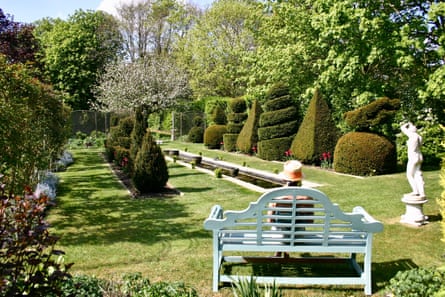
The site of the family-owned Gotha Gardens at Pembroke Farm, north Hertfordshire, was an arable field until 1990. The original plan was to create a woodland walk with plants to attract pollinators and other wildlife, but then topiary and formal areas were added. On our visit, purple delphiniums and alliums buzzed with bees, and we watched water boatmen and damselflies around the pond. Wandering through the different sections felt like visiting separate open-air rooms, with places to sit and enjoy them. We also loved the tea and scones at the garden’s small outside cafe.
It’s open Friday to Monday each week and costs only a fiver to get in.
Sharon Pinner
Readers' tips: send a tip for a chance to win a £200 voucher for a Coolstays break
ShowGuardian Travel readers' tips
Every week we ask our readers for recommendations from their travels. A selection of tips will be featured online and may appear in print. To enter the latest competition visit the readers' tips homepage
-
An Italianate terrace in Norwich
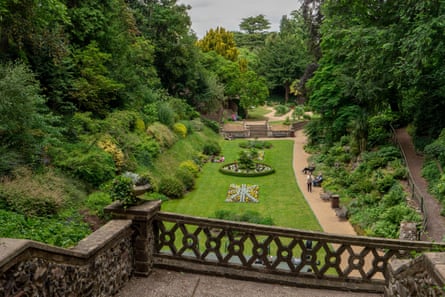
Located slightly outside the city centre, and perhaps overlooked by visitors (but not by locals), is the Plantation Garden. Stepping into this sunken Victorian garden feels like entering another world. With time to kill before catching a train home, we spent a happy afternoon exploring the 1.2-hectare (three-acre) site, walking the woodland paths and admiring the view from the Italianate terrace before enjoying a cup of tea and homemade cake to the sound of a live jug-band (part of a summer music programme). Entrance costs just £2 and the place is open 9am-6pm in spring and summer and 9am-4pm October to March. For those lucky enough to be local, each summer they host plays, music and exercise classes.
Lisa
Wild beauty by the Menai Straits, Gwynedd
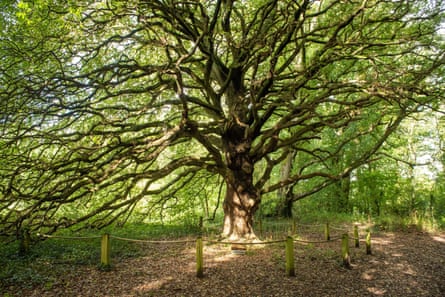
When I visited Treborth Botanic Garden in May, it was buzzing with life. Covering 18 hectares along the shores of the Menai Strait, the gardens are owned by Bangor University and blend wild beauty with careful horticulture. Informative labels guided me through a collection of fascinating plants, while a wildlife area featured a pond teeming with tadpoles and vibrant dragonflies. Glasshouses (restricted entry) host cacti and orchids. Paths through ancient woodland led down to the Menai Bridge, offering spectacular views across the strait. Treborth also boasts award-winning gardens, including a Chelsea flower show gold medal winner. It’s free to enter and open every day in daylight hours.
Pamela
Cornwall’s perennially gorgeous peninsula
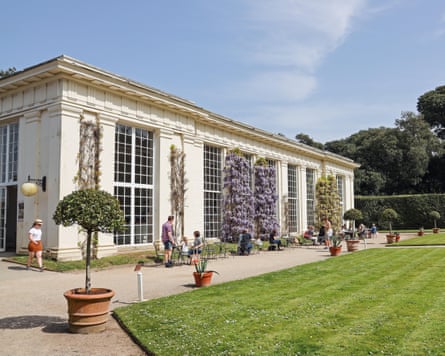
The formal gardens at Mount Edgcumbe country park are tucked away in the tranquil hills of the Rame peninsula, but are only a short foot-ferry trip from Plymouth. They are free to enter and cover three hectares and 500 years of historical garden design within a hedge-maze honeycomb. Bay arches serve as portals between 18th-century Italy, 19th-century France, and the distinctive flora of New Zealand. There’s ice-cream in the Regency Orangery and shady serenity in the Fern Dell. It’s not only human visitors who enjoy this area: the park is also the UK’s first reserve for rare Cornish black bees. The park and lower gardens are open all year.
Charlotte Robinsmith
Horticultural masterpiece, Harlow, Essex
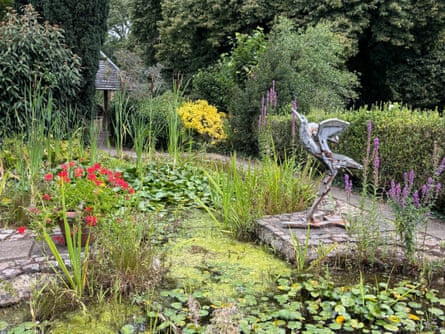
The Gibberd Garden, just outside Harlow, Essex, is testament to one collector’s determination. From architectural salvage picked up and saved from developer’s bulldozers, to contemporary sculptures, to Staffordshire figurines displayed in the house, architect Sir Frederick Gibberd collected them all and used them to enhance the steep, stream bordered plot he bought with his wife. He diverted the stream slightly to create a moated fort for his grandchildren – complete with working drawbridge– put up a swing, a tree house, a grotto and completed the magic with imaginative planting including a glorious mosaic beech hedge. Find small treasures to delight and monumental features repurposed to impress, enhancing every twisting turn and vista. Open Wednesdays and Sundays and bank holiday Mondays; adults £6, under 16, £1. Oh, and there’s an excellent cafe on site.
Vicky
after newsletter promotion
A hellebore of a place, Somerset
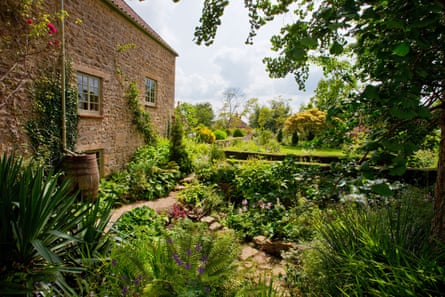
Entering East Lambrook Manor Gardens, tucked away in the Somerset countryside, feels like stepping into a living painting. Designed by the influential gardener Margery Fish, it’s a haven of winding paths, quirky plant combinations, and uncommon treasures tucked into every border. I visited on a drizzly spring morning and had the place almost to myself – just the scent of damp earth, the hum of bees, and the joy of discovering rare hellebores and old-fashioned roses around every corner. My tip? Go on a weekday and linger – the nursery has incredible finds to take home, and the tiny cafe serves up tea that tastes twice as good after a ramble through such quietly magical surroundings. The gardens are open Tues-Sat (10am-5pm) and cost £7 to enter, with under-16s going free.
Mahesh Lakhani
17th-century walls, north-west London
Church Gardens is a hidden gem on the outskirts of Harefield village, a few miles north of Uxbridge. The couple who own it – Kay and Patrick McHugh, a musician and an architect respectively – have worked hard for about 25 years to bring the hectare (three acres) of 17th-century walled gardens back from dereliction. The kitchen garden is a patchwork of beautifully designed features including 56 geometrically arranged organic vegetable beds. The orchard is believed to be the remains of a historically significant Renaissance pleasure garden; with a unique arcaded wall comprising 33 identical niches, very few gardens of this type survived the landscape movement. The gardens are open on Sundays (12-5pm) and bank holiday Mondays (11am-5pm), adults £7.50, children £3.
Sarah Bayley
Incredible vegetables, Moray
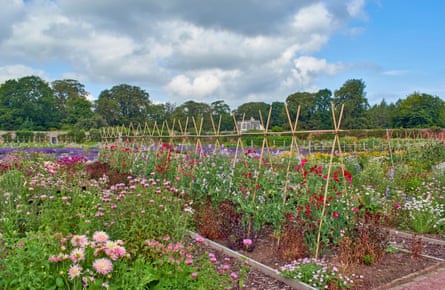
We loved our summer visit to Gordon Castle’s walled garden, which is between the River Spey and the Moray coast, 50 miles east of Inverness. At about three hectares (eight acres), it is full to the brim with vegetables, fruit and flowers that inspired us in our own growing. Friendly gardeners were happy to give us insights in to what was growing and told us about their own lovely adventures in gardening. The cafe uses the garden’s delicious produce and it also has a brilliant shop. All that for £10 for adults (child, £5) in summer (or free for RHS members on Thursdays). It’s open every day, 10am-4pm, but the cafe is not open on Mondays and Tuesdays.
Siobhan
Winning tip: a garden dripping with temperate rainforest decorations, Argyll
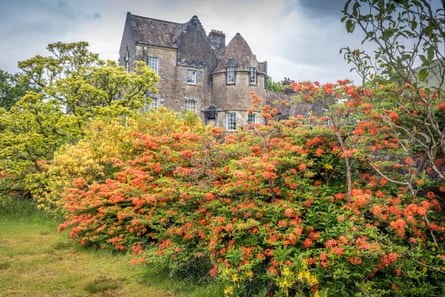
Lovers of trees and wilder gardens must make time to head west to Ardkinglas Woodland Garden, near Inverary in Argyll. At the modest price of £5 (children £2.50, open all year dusk until dawn) you can wander under towering North American conifers alongside Himalayan shrubs and native UK trees, all dripping with that lush temperate rainforest decoration of mosses and lichens. Visitors can spot red squirrels jumping on beautifully chaotic deadwood, try forest bathing in dappled light with the sweet smell of resin, and watch dippers along the burn. Ardkinglas combines a formal arboretum with the wild wood, and does it rather splendidly.
Liam


 3 months ago
166
3 months ago
166

















































